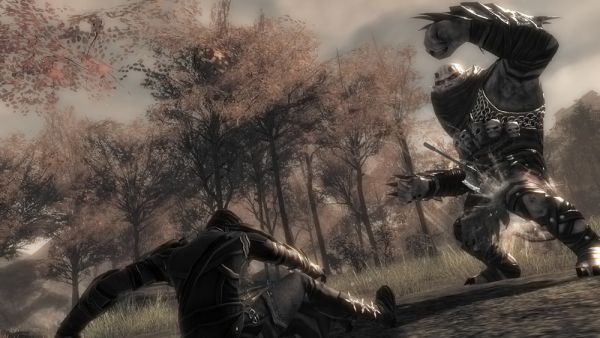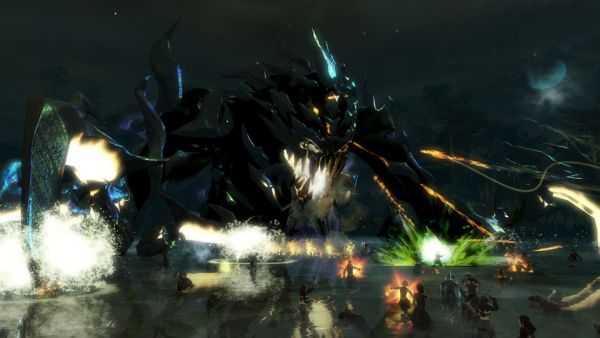
The Downed State and Defeat:
When a character's health reaches 0 in Guild Wars 2, you will enter a "downed state" (the exception being the Necromancer who instead enters into a Death Shroud state) instead of death, like in Guild Wars 1. Players will receive access to four profession-specific skills which they can use to continue to help their companions even though they're immobile, or in an attempt to get a kill so they can rally back to life (think like in Borderlands). If a player is not revived or rallied within a set amount of time, they enter are considered defeated and cannot use any skills at all (similar to death in other MMOs). From a defeated state a player can only wait for a revive or choose to resurrect at a waypoint.
Skills:
Just like in Guild Wars 1, in Guild Wars 2 you will have a limited number of skill slots available to you when you’re out in the world adventuring. In GW1, there were 8 skills you could bring. In GW2 they’ve upped it to 10 with a few major twists. For one, there’s a split between the first 5 skills and second 5 skills. The first 5 skills are weapon-dependent. You can create some variation if you are using a mainhand and offhand (e.g. the Elementalist could choose to use a scepter in her mainhand, which focuses on close-range combat, and a focus in her offhand, which also focuses on close-range combat for what I assume would be some kind of very, very potent close-range nuker; or she could elect to take a dagger in her offhand, which focuses on medium range spells which I would then assume created some kind of close-to-mid range combination), but only your weapon or weapon combination will effect which skills fill up these first five slots. The second 5 slots allow more customization, one slot being reserved for a healing-type skill like I mentioned previously, and one slot being reserved for an elite skill. The other three I believe to be open to all the other non-elite skills you unlock throughout playing the game.
Traits:
This time around, a great amount of the way you customize your character will be through traits. Traits are equippable passive abilities that can change the functionality of an individual skill, a set of skills, or just make small general boosts to your character. Some examples include a warrior trait that increases his chance to critical while using an axe, or a necromancer trait that makes all of her sacrifice skills do more damage. Through these traits you will be able to define your build, not simply through the skills and weapons you pick, but how you choose to modify your skills. There will be about 100 available traits per profession and you will be able to equip several dozen traits at a time (exact number dependent on profession). They come in two flavors: profession-specific and weapon-specific. For balance reasons, there will not be any racial traits so as to not give any particular race advantage over another in a particular profession.

The Open Road and Dynamic Events:
If you played Guild Wars 1, one thing that might have stood out to you was the fact that everything was instanced, except towns which acted as hubs for people to group up and go adventuring together. While ArenaNet is clear in that missions will continue to be instanced as they feel this is a great way to convey a story, they have also elected to make the world much more open to players. This is where Dynamic Events come into play. Dynamic Events are triggered by the actions of players interacting with and exploring the area. They have multiple outcomes, with even the possibility of triggering a new event. This system was developed to replace traditional quests in MMORPGs. To prevent spawn-camping and and kill-stealing, Dynamic Events reward everyone who participated as well as giving them 100% of any gained experience, even if they were not in a party together. This promotes cooperation rather than competition in PVE. Furthermore, events will scale based on the number of participants: the number of enemies may increase, or the level of the enemies may increase, or the enemies might start using new skills. Even if players fail an event, they will still receive a small type of reward to ensure that they don’t feel like their time was wasted. Rewards include gold, xp, and karma rewards.